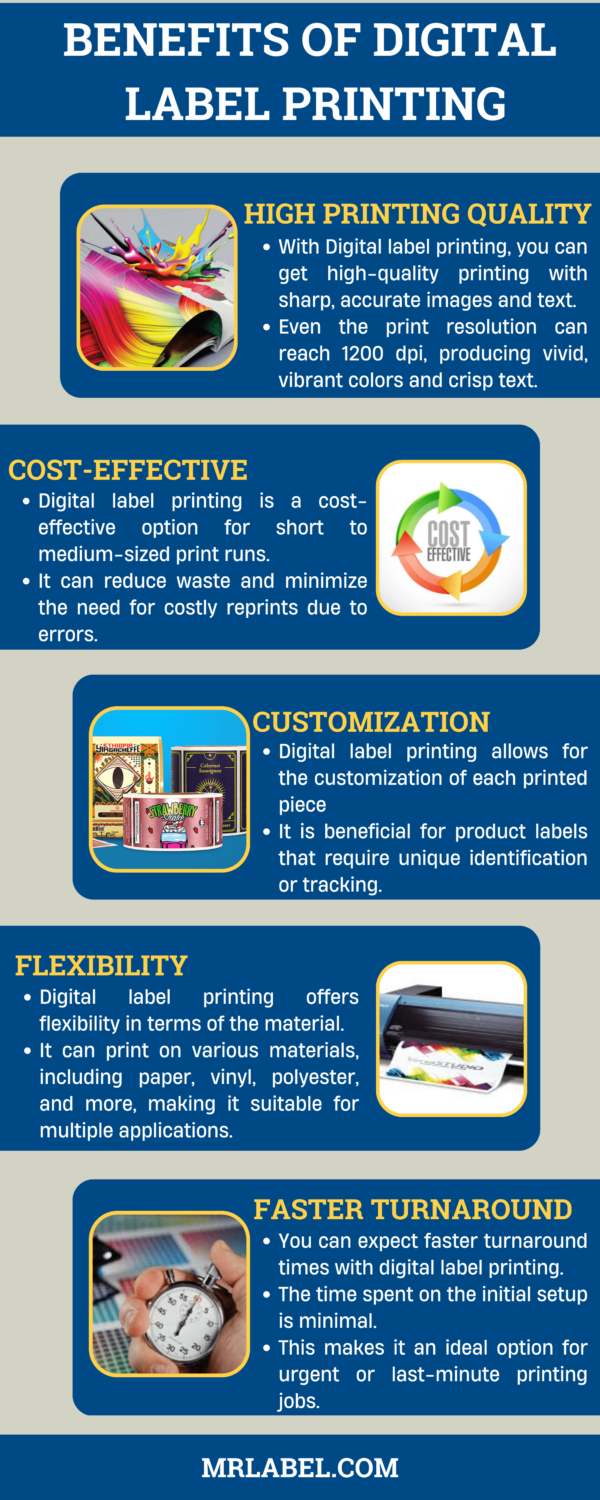The 7-Minute Rule for Digital Printing
The 7-Minute Rule for Digital Printing
Blog Article
The Of Digital Printing
Table of ContentsAbout Digital PrintingThe Greatest Guide To Digital PrintingMore About Digital PrintingNot known Factual Statements About Digital Printing The 5-Second Trick For Digital PrintingThings about Digital Printing
Variable data printing, such as direct mail with individualized codes and addresses, is preferably fit for digital printing. Digital quick printing just needs 4 actions of design, testimonial, printing and binding to obtain everything done. Digital quick printing has an unmatched advantage: print on need.According to PMMI, electronic printing allows brand names and manufacturers to react promptly to consumer needs while enhancing the supply chain, decreasing warehousing expense and waste, and taking pleasure in faster time to market. That all noises fantastic, yet just how does this innovation do all that? The significant differentiator of these modern technologies is that there are no set up costs and no plates with digital printing.
Digital Printing Things To Know Before You Buy
According to Wikipedia, the best distinction in between electronic printing and typical approaches such as lithography, flexography, gravure, or letterpress - Digital Printing is that there is no requirement to change printing plates in digital printing, whereas in these analog printing methods the plates are consistently replaced. This results in quicker turn-around time and decreases cost when using electronic printing.
Digital printing is highly adaptable, so it's easy to make modifications to the package layout rapidly. It all goes back to the plates.
With conventional printing methods, short-run printing is just not possible. Because a fantastic layout can make or break your product, electronic printing continually creates top quality, clear and colorful graphics each time.
Digital printing is the procedure of printing digital-based photos straight onto a range of media substrates. There is no need for a printing plate, unlike with offset printing. Digital data such as PDFs or desktop computer posting documents can be sent out straight to the electronic printing press to print theoretically, image paper, canvas, material, synthetics, cardstock and other substrates.
Digital Printing Fundamentals Explained
According to PMMI, electronic printing enables brand names and producers to react swiftly to customer demands while boosting the supply chain, reducing warehousing cost and waste, and taking pleasure in faster time to market. That all sounds great, however how does this modern technology do all that? The major differentiator of these modern technologies is that there are no set-up costs and no plates with electronic printing.
According to Wikipedia, the best distinction in between digital printing and standard approaches such as lithography, flexography, gravure, or letterpress is that there is no requirement to change printing plates in electronic printing, whereas in these analog printing techniques the plates are repeatedly changed. This results in quicker turnaround time and reduces price when using electronic printing.

Not known Details About Digital Printing
More inventory can suggest even more waste down the road. With conventional printing methods, short-run printing is just not feasible. Due to the fact that a wonderful layout can make or break your product, digital printing regularly produces high-quality, clear and colorful graphics each time. Digital printing on flexible bags includes the intense, vibrant, and accurate basics graphics that almost beckon consumers to connect and touch them.

According to PMMI, electronic printing enables brand names and suppliers to respond promptly to client demands while boosting the supply chain, minimizing warehousing cost and waste, and delighting in faster time to market. That all sounds wonderful, however exactly how does this technology do all that? The significant differentiator of these innovations is that there are no set-up costs and no plates with digital printing.
9 Easy Facts About Digital Printing Shown
According to Wikipedia, the best difference between digital printing and standard methods such as lithography, flexography, gravure, or letterpress is that there is no need to change printing plates in digital printing, whereas in these analog printing techniques home plates are continuously changed. This leads to quicker turn-around time and reduces price when making use of electronic printing.
Digital printing is very adaptable, so it's easy to make changes to the package style promptly. It all goes back to the plates.

Getting My Digital Printing To Work
Digital printing is the process of printing digital-based photos straight onto a variety imp source of media substrates. There is no demand for a printing plate, unlike with countered printing. Digital files such as PDFs or desktop computer publishing data can be sent directly to the digital printing machine to print theoretically, image paper, canvas, fabric, synthetics, cardstock and other substrates.
Report this page